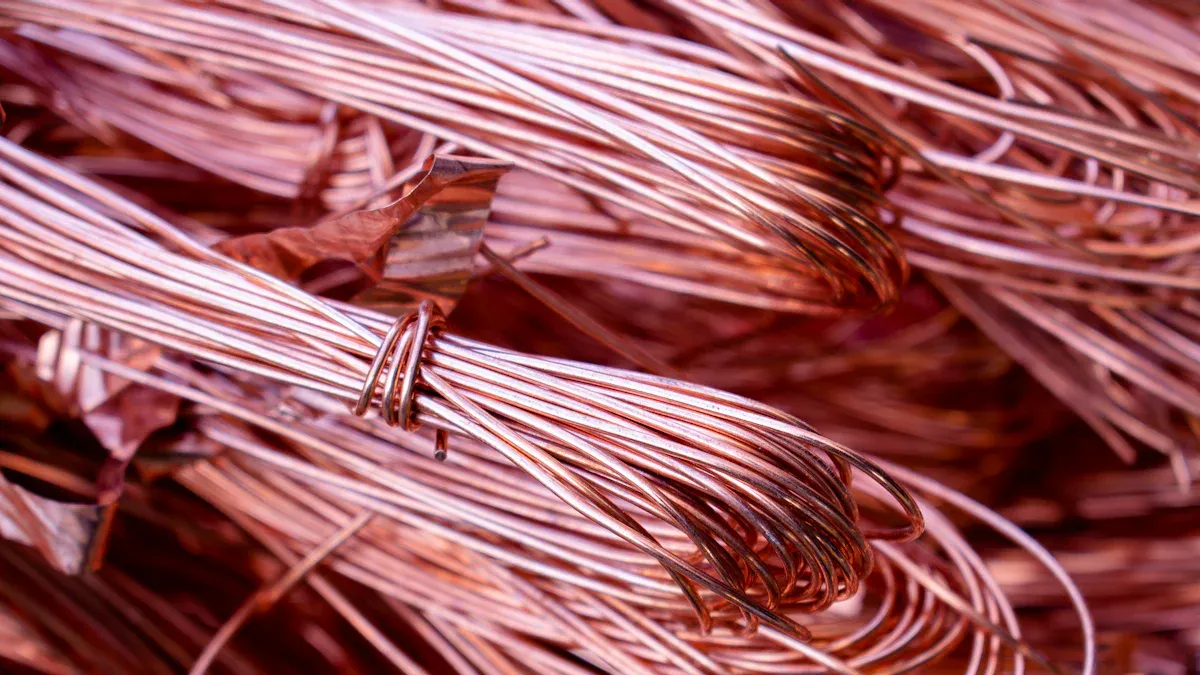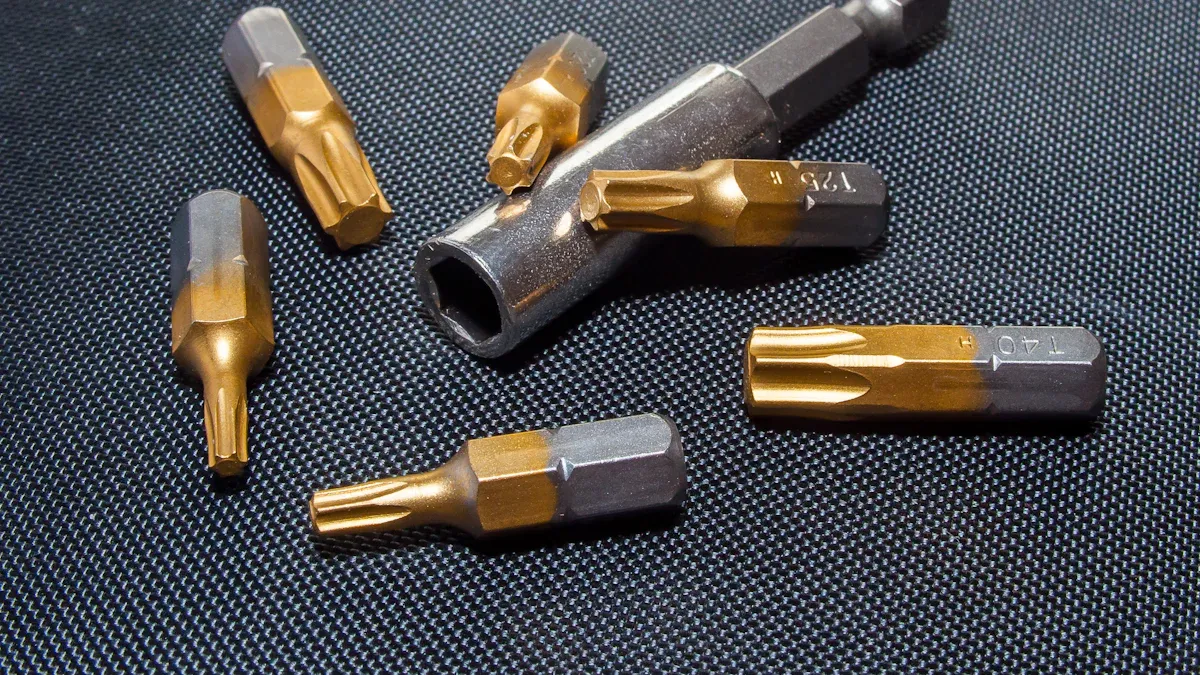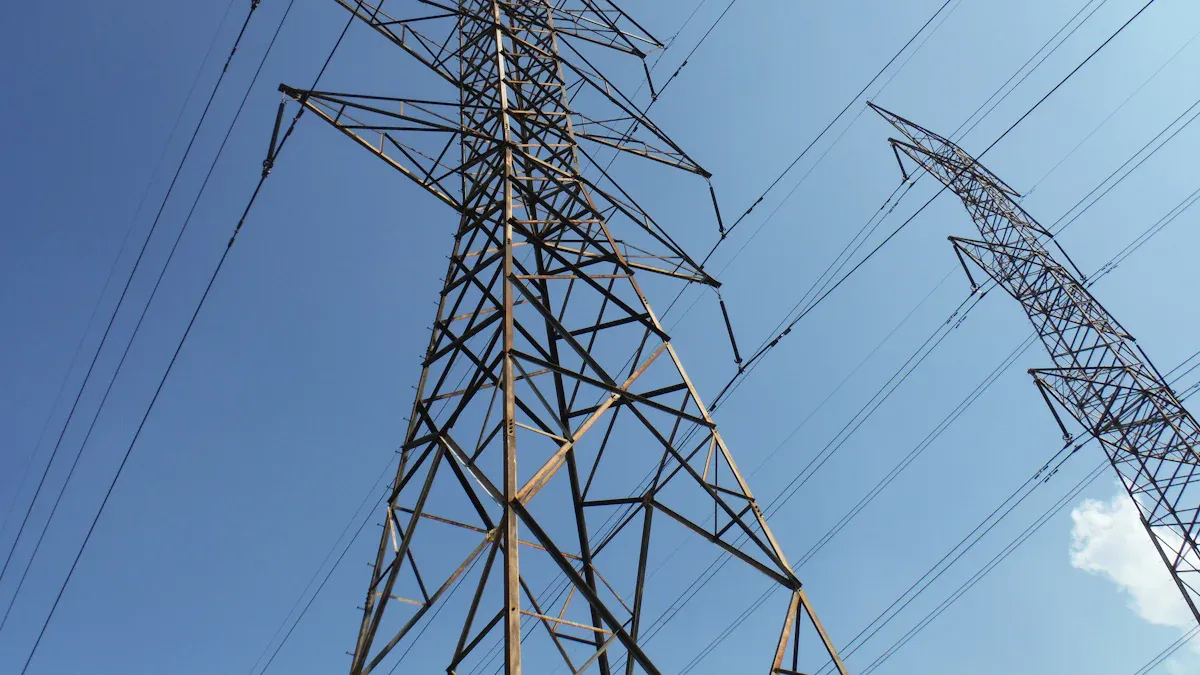
Silicon bronze plays a vital role in modern industries, especially in electric power systems, where silicon bronze precision castings for electric power components are essential. Its unique properties make it a top choice for silicon bronze precision castings, offering durability, conductivity, and resistance to tough conditions. For instance, advancements in manufacturing have made silicon bronze castings for electric power more accessible and cost-effective, ensuring its growing demand across sectors like construction and electronics. Rapid industrialization in regions like Asia-Pacific has further fueled its adoption. A silicon bronze precision castings factory can now deliver reliable components that meet these increasing needs.
With its recyclability and longevity, silicon bronze stands out as a sustainable solution for power systems.
Key Takeaways
- Silicon bronze resists rust very well, perfect for tough conditions.
- Its great electrical conductivity saves energy and improves power flow.
- Strong and durable, silicon bronze lasts long, needing fewer repairs.
Silicon Bronze Precision Castings for Electric Power Components

Key Properties of Silicon Bronze
Silicon bronze stands out as a material of choice for precision casting due to its exceptional properties. Its ease of pouring allows manufacturers to create intricate designs with minimal effort. This makes it ideal for producing complex electric power components. The material also boasts high corrosion resistance, ensuring that components last longer even in harsh environments. Additionally, its self-lubricating properties simplify the casting process, enabling the creation of smooth and detailed surfaces.
The table below highlights some of the key properties that make silicon bronze suitable for precision casting:
| Property | Description |
|---|---|
| Ease of pouring | Silicon allows for easy pouring, making it ideal for precision casting. |
| Surface properties | Provides visually appealing surfaces, enhancing the final product’s quality. |
| Corrosion resistance | High resistance to corrosion, increasing the longevity of cast items. |
| Self-lubricating properties | Enhances the ability to shape or cast intricate designs easily. |
| Tensile strength | C642 silicon aluminum bronze has a tensile strength between 75 and 90 ksi. |
| Machinability | C642 has a machinability value of 60, facilitating easier processing. |
| Size uniformity | Wrought alloy nature enhances size uniformity compared to cast items. |
These properties ensure that silicon bronze precision castings for electric power components meet the high standards required in the industry.
Importance of Precision Casting in Electric Power Systems
Precision casting plays a crucial role in the production of reliable electric power components. This method ensures that each component meets strict dimensional tolerances, resulting in consistent performance. For example, precision casting achieves a consistency rate of 96.29%, significantly higher than sand mold casting, which only reaches 81.22%. This level of accuracy is vital for components like connectors, switches, and terminals, where even minor deviations can lead to system failures.
The table below compares precision casting with sand mold casting:
| Casting Method | Minimum Tolerance | Consistency (%) | Mean (mm) | Standard Deviation (mm) |
|---|---|---|---|---|
| Precision Casting | 0.5 mm | 96.29 | -0.18 | 0.2143 |
| Sand Mold Casting | 0.5 mm | 81.22 | -0.2406 | 0.2868 |
By using precision casting, manufacturers can produce components that not only fit perfectly but also perform reliably under demanding conditions. This process ensures that silicon bronze precision castings for electric power components deliver the durability and efficiency needed for modern power systems.
Key Takeaway: The unique properties of silicon bronze, combined with the accuracy of precision casting, make it an indispensable material for electric power components.
Applications of Silicon Bronze in Electric Power Components
Connectors and Terminals
Silicon bronze is a go-to material for connectors and terminals in electric power systems. Its high copper content, typically around 90%, ensures excellent electrical conductivity, minimizing power losses during transmission. This makes it ideal for applications where efficiency is critical. The material also offers impressive tensile strength, rated at 65,000 PSI, which guarantees durability under mechanical stress.
In addition to its strength, silicon bronze connectors resist corrosion caused by weather conditions and industrial pollutants. This feature is particularly valuable in outdoor installations, where components face constant exposure to moisture and contaminants. Silicon bronze connectors are also easy to install and maintain, making them a practical choice for technicians.
Here’s a quick look at the technical data supporting its use in connectors and terminals:
| Feature | Value |
|---|---|
| Material Composition | Typically 90% copper, 10% tin |
| Tensile Strength | 65,000 PSI (450 MPa) |
| Electrical Conductivity | 16% IACS |
| Temperature Rating | -40°C to 150°C |
| Corrosion Resistance | Very Good |
Tip: Silicon bronze connectors are engineered for safety, reducing the risk of electrical faults and ensuring reliable performance in critical systems.
Switches and Circuit Breakers
Switches and circuit breakers are essential for controlling and protecting electric power systems, and silicon bronze plays a vital role in their construction. Its high conductivity (20% IACS) ensures efficient electrical performance, while its thermal stability allows it to withstand extreme temperatures without degrading. These properties make silicon bronze ideal for high-reliability applications, such as aerospace electronics and offshore wind turbines.
Manufacturers also favor silicon bronze for its ability to resist stress corrosion cracking. This ensures that switches and circuit breakers maintain their integrity even in demanding environments, such as industrial plants or marine settings. A 2024 study revealed that silicon bronze wire assemblies in subsea power transmission systems had 50% lower failure rates compared to pure copper alternatives after 10,000 operational hours. This highlights its superior reliability in long-term applications.
Key Point: Silicon bronze’s durability and resistance to harsh conditions make it a trusted material for switches and circuit breakers in both standard and specialized power systems.
Grounding Systems and Electrical Hardware
Grounding systems and electrical hardware rely on materials that can handle high conductivity and resist environmental stress. Silicon bronze excels in these applications, particularly in grounding rods and switchgears. Its ability to form a protective oxide layer ensures long-term corrosion resistance, even in saltwater or chemically aggressive environments.
Comparative performance metrics further validate silicon bronze’s effectiveness in grounding systems. For instance, Silicon Bronze 651 offers higher electrical and thermal conductivity compared to Silicon Bronze 655, making it the preferred choice for critical applications like connectors and grounding rods. Here’s a comparison:
| Property | Silicon Bronze 651 | Silicon Bronze 655 |
|---|---|---|
| Electrical Conductivity | Higher | Lower |
| Thermal Conductivity | Superior | Inferior |
| Applications | Switchgears, Connectors, Grounding Rods | Less suitable |
Silicon bronze’s versatility extends to other electrical hardware, such as bonding wires in semiconductors. These wires are used in high-reliability systems, including aerospace electronics, where performance and durability are non-negotiable.
Takeaway: Silicon bronze’s unique properties make it indispensable for grounding systems and electrical hardware, ensuring safety and efficiency in diverse applications.
Benefits of Using Silicon Bronze in Power Systems

Corrosion Resistance in Harsh Environments
Silicon bronze offers exceptional resistance to corrosion, making it a reliable choice for electric power components exposed to challenging conditions. Its ability to withstand moisture, saltwater, and industrial pollutants ensures long-lasting performance. This property is especially valuable in outdoor installations, such as power grids and substations, where components face constant exposure to the elements.
The material forms a protective oxide layer when exposed to air, which prevents further corrosion. This self-healing feature allows silicon bronze to maintain its structural integrity even in chemically aggressive environments. For instance, grounding rods made from silicon bronze perform exceptionally well in coastal areas with high humidity and salt content.
Key Takeaway: Silicon bronze’s corrosion resistance ensures that power components remain functional and durable, even in the harshest environments.
High Electrical Conductivity for Efficient Performance
Electric power systems demand materials that can efficiently conduct electricity. Silicon bronze meets this requirement with its high electrical conductivity, which minimizes energy loss during transmission. This makes it an ideal material for connectors, terminals, and other critical components in power distribution networks.
The high copper content in silicon bronze contributes to its excellent conductivity. For example, silicon bronze precision castings for electric power components ensure efficient energy transfer, reducing the risk of overheating and power loss. This efficiency not only enhances system performance but also lowers operational costs over time.
Key Takeaway: The superior electrical conductivity of silicon bronze supports efficient power transmission, making it a cost-effective and reliable choice for electric power systems.
Durability and Strength for Long-Term Use
Durability is a key factor in the performance of electric power components, and silicon bronze excels in this area. Its high tensile strength and resistance to wear and tear make it suitable for applications that require long-term reliability. Components made from silicon bronze can withstand mechanical stress, vibrations, and thermal fluctuations without compromising their functionality.
In addition to its strength, silicon bronze resists deformation under heavy loads. This makes it a preferred material for switches, circuit breakers, and other components that experience frequent mechanical operations. The durability of silicon bronze also reduces the need for frequent replacements, saving time and resources in maintenance.
Key Takeaway: Silicon bronze’s durability and strength ensure that power components deliver consistent performance over extended periods, even under demanding conditions.
How Silicon Bronze Ensures Reliability in Power Components
Preventing Failures in Critical Systems
Failures in electric power systems can lead to costly downtime and safety risks. Silicon bronze precision castings for electric power components help prevent these issues by offering unmatched reliability. Their high tensile strength and resistance to wear ensure that components like connectors and switches perform consistently under stress. This durability minimizes the risk of mechanical failures, even in demanding environments.
Corrosion resistance also plays a key role in preventing system failures. Silicon bronze forms a protective oxide layer that shields components from moisture, salt, and pollutants. This makes it ideal for outdoor installations, where exposure to harsh conditions is unavoidable. By maintaining structural integrity over time, silicon bronze components reduce the likelihood of unexpected breakdowns.
Key Point: Reliable materials like silicon bronze are essential for ensuring uninterrupted power delivery in critical systems.
Enhancing Safety and Performance in Power Distribution
Safety and performance are top priorities in power distribution. Silicon bronze precision castings for electric power components contribute to both by offering excellent conductivity and thermal stability. These properties ensure efficient energy transfer while reducing the risk of overheating. Components made from silicon bronze also resist electrical faults, enhancing overall system safety.
In addition, the material’s strength and durability allow it to withstand mechanical stress and vibrations. This makes it a trusted choice for components used in high-stress environments, such as industrial plants and substations. By improving both safety and performance, silicon bronze supports the reliable operation of power distribution networks.
Real-World Examples of Silicon Bronze in Action
Silicon bronze has proven its value in various real-world applications. For example, grounding rods made from silicon bronze are widely used in coastal areas. Their corrosion resistance ensures long-term performance, even in salty and humid conditions. Similarly, silicon bronze connectors and terminals are common in renewable energy systems, where reliability is critical.
Another notable example is the use of silicon bronze in offshore wind turbines. These structures face extreme weather and constant exposure to saltwater. Silicon bronze components, such as switchgears and bonding wires, provide the durability needed to withstand these challenges. These real-world successes highlight the material’s ability to deliver reliable performance in diverse applications.
Takeaway: From renewable energy systems to industrial plants, silicon bronze proves its worth by ensuring reliability and safety in power components.
Silicon bronze has proven itself as a game-changer for electric power components. Its unmatched corrosion resistance, excellent conductivity, and impressive durability make it a reliable choice for demanding environments. From connectors to grounding systems, its applications are vast and impactful.
Key Takeaway: Silicon bronze ensures power systems remain safe, efficient, and long-lasting, solidifying its role in modern infrastructure.
FAQ
What makes silicon bronze better than other materials for power components?
Silicon bronze offers superior corrosion resistance, high conductivity, and excellent durability. These properties make it ideal for demanding environments and long-term reliability in power systems.
Key Point: Its unique combination of strength and conductivity ensures consistent performance.
Can silicon bronze components handle extreme weather conditions?
Yes, silicon bronze resists moisture, saltwater, and pollutants. Its protective oxide layer ensures durability, even in harsh environments like coastal areas or industrial plants.
Tip: Use silicon bronze for outdoor installations to maximize longevity.
Is silicon bronze environmentally friendly?
Absolutely! Silicon bronze is recyclable and long-lasting. Its sustainability makes it a smart choice for eco-conscious industries aiming to reduce waste and environmental impact.
Takeaway: Choosing silicon bronze supports both performance and sustainability.
